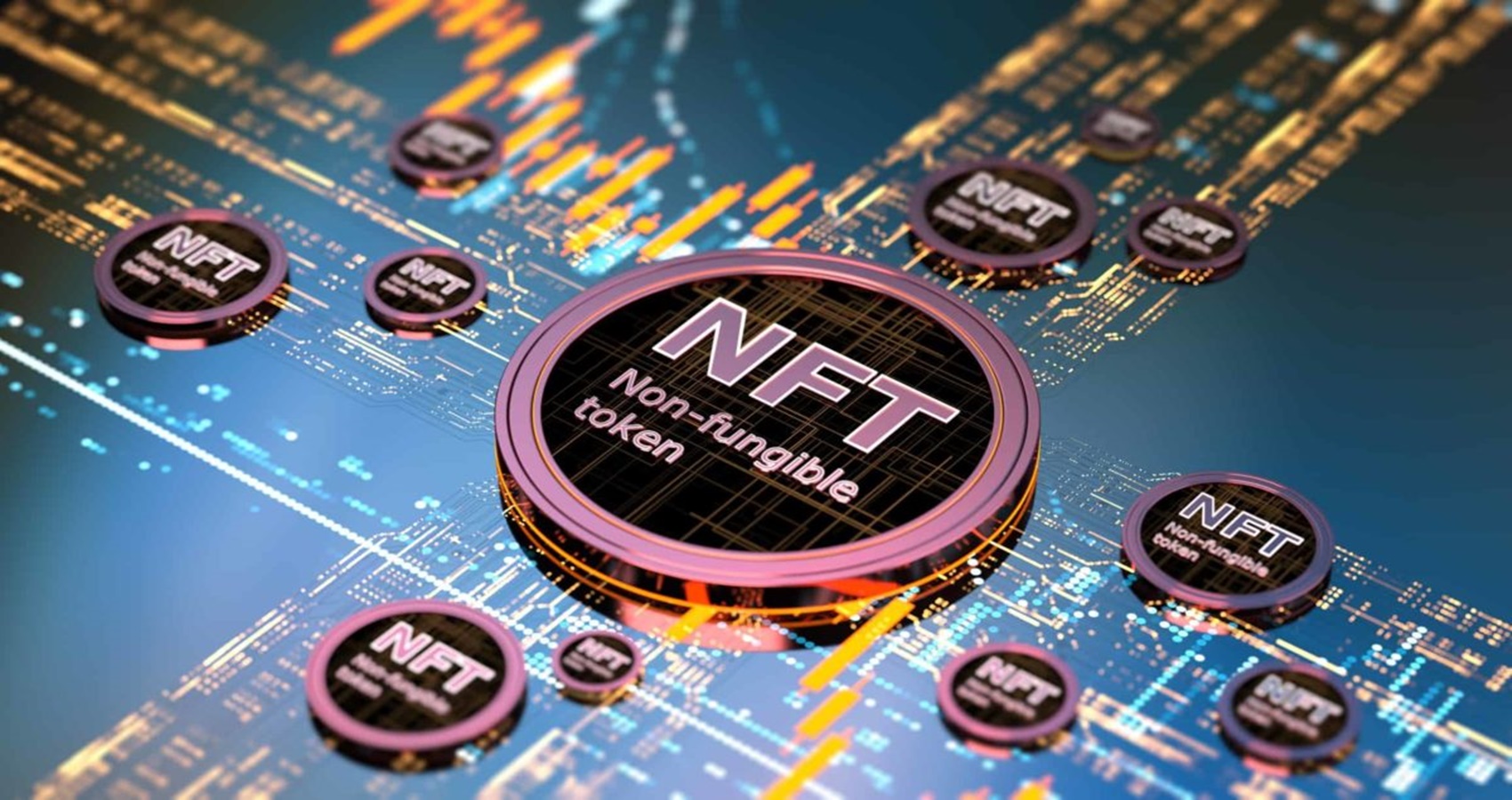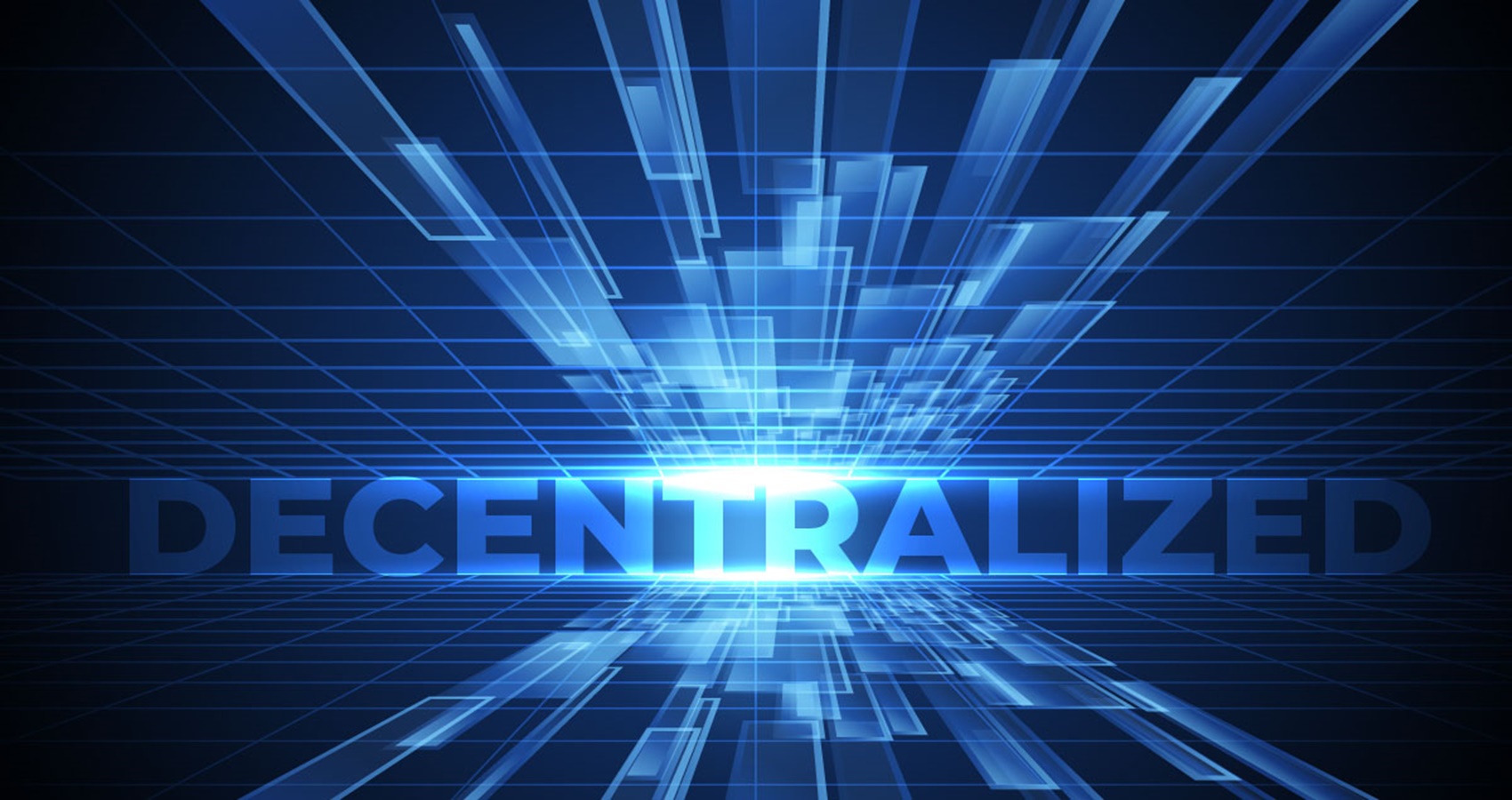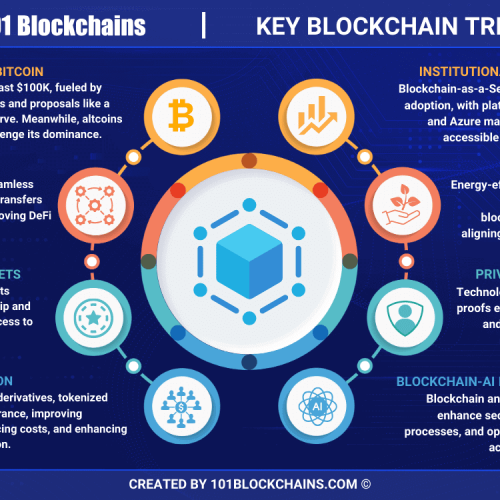The world of Non-Fungible Tokens (NFTs) has been rapidly evolving, offering countless opportunities for creators, collectors, and investors alike. As the popularity of digital collectibles continues to soar, a diverse ecosystem of NFT tools and platforms has emerged to cater to the growing demand. In this article, we’ll explore the best NFT tools and platforms that can help you navigate the exciting world of NFTs. From NFT creation and minting to marketplace integration and analytics, we’ve curated a comprehensive list of the top solutions to empower your NFT endeavors. Whether you’re a seasoned NFT enthusiast or just dipping your toes into the world of digital assets, this guide will equip you with the knowledge and resources to unlock the full potential of Non-Fungible Tokens. Best Non-Fungible Token (NFT) Tools 1. OpenSea Category: NFT Marketplace OpenSea is the largest and most established marketplace for buying, selling, and trading Non-Fungible Tokens. As the leading NFT platform, OpenSea offers a vast selection of digital assets, ranging from art and collectibles to virtual real estate and gaming items. Key features of OpenSea: OpenSea’s dominance in the NFT marketplace space, combined with its user-friendly features and growing ecosystem, makes it a must-have tool for anyone interested in the NFT market. 2. Rarible Category: NFT Marketplace Rarible is another prominent NFT marketplace that empowers creators and collectors to buy, sell, and trade a diverse range of digital assets. Built on the Ethereum blockchain, Rarible offers a user-friendly platform with a focus on fostering a vibrant creator community. Key features of Rarible: Rarible’s emphasis on empowering creators and its innovative governance model have made it a popular choice for both seasoned and aspiring NFT artists and collectors. 3. SuperRare Category: NFT Marketplace SuperRare is a curated NFT marketplace that focuses on high-quality digital art and collectibles. The platform operates as an invite-only network, fostering a selective and exclusive environment for NFT enthusiasts and art connoisseurs. Key features of SuperRare: SuperRare’s commitment to exclusivity and the curation of exceptional digital art has made it a premier destination for NFT collectors seeking unique and valuable digital assets. 4. Mintable Category: NFT Creation and Minting Mintable is a user-friendly NFT creation and minting platform that empowers both experienced and novice creators to bring their digital creations to life as Non-Fungible Tokens. Key features of Mintable: Mintable’s focus on simplifying the NFT creation and minting process has made it a popular choice for artists, designers, and creators looking to enter the world of digital collectibles. 5. Nifty Gateway Category: NFT Marketplace Nifty Gateway is a premier NFT marketplace known for its high-profile collaborations with renowned artists, musicians, and brands. The platform offers a curated selection of exclusive digital artworks and collectibles, catering to a discerning audience of NFT collectors. Key features of Nifty Gateway: Nifty Gateway’s focus on quality over quantity, combined with its partnerships with renowned creators, has made it a go-to destination for high-end NFT enthusiasts and collectors. 6. Enjin Category: NFT Development Tools Enjin is a leading blockchain platform that provides a suite of tools and services for developing, integrating, and managing Non-Fungible Tokens. Enjin’s solutions cater to a wide range of users, from game developers to enterprise-level businesses. Key features of Enjin: Enjin’s comprehensive ecosystem of tools and its focus on enabling mainstream NFT adoption make it a valuable resource for developers, creators, and businesses interested in the NFT space. 7. Remix IDE Category: NFT Development Tools Remix IDE is a popular open-source development environment for building and deploying smart contracts, including those used for Non-Fungible Tokens. Remix IDE provides a user-friendly interface and a range of features to simplify the NFT development process. Key features of Remix IDE: Remix IDE’s versatility and ease of use have made it a go-to tool for both novice and experienced blockchain developers looking to create their own NFT projects. 8. OpenZeppelin Category: NFT Development Tools OpenZeppelin is a leading provider of secure, community-vetted smart contract libraries for building decentralized applications, including those that involve Non-Fungible Tokens. The project’s focus on security and best practices has made it a trusted resource among blockchain developers. Key features of OpenZeppelin: OpenZeppelin’s robust and secure smart contract solutions have become an essential tool for developers looking to build reliable and scalable NFT applications. 9. Pinata Category: NFT Content Hosting and IPFS Pinata is a cloud-based platform that provides secure and scalable hosting solutions for Non-Fungible Token (NFT) content, leveraging the InterPlanetary File System (IPFS) protocol. Key features of Pinata: Pinata’s expertise in IPFS-based content hosting makes it a valuable tool for NFT creators, developers, and platforms looking to ensure the long-term accessibility and preservation of their digital assets. 10. NFTPort Category: NFT Development Tools NFTPort is a comprehensive suite of APIs and services designed to simplify the development and integration of Non-Fungible Tokens. The platform provides a range of tools and features to help developers and businesses build and deploy NFT-powered applications. Key features of NFTPort: NFTPort’s focus on providing a developer-centric solution has made it a popular choice for teams and organizations looking to rapidly build and deploy NFT-based products and services. 11. Manifold Studio Category: NFT Creation and Minting Manifold Studio is a powerful no-code platform that enables creators to design, mint, and manage their own Non-Fungible Tokens (NFTs) without the need for technical expertise. Key features of Manifold Studio: Manifold Studio’s user-friendly interface and comprehensive feature set make it an attractive choice for artists, designers, and creators looking to enter the NFT space without the burden of complex technical implementation. 12. Zora Category: NFT Marketplace and Development Tools Zora is a decentralized protocol and ecosystem that enables the creation, trading, and management of Non-Fungible Tokens. The platform offers a suite of tools and services for both NFT creators and collectors. Key features of Zora: Zora’s comprehensive ecosystem, coupled with its focus on decentralization and open-source development, makes it a compelling choice for creators, developers, and collectors looking to participate in the evolving NFT landscape. Conclusion The world of Non-Fungible Tokens (NFTs) has seen exponential growth, and the array of tools and platforms
The Role of a Blockchain Developer: Shaping the Future of Decentralized Technology
In the rapidly evolving landscape of emerging technologies, the role of the blockchain developer has become increasingly crucial. As the world embraces the transformative potential of blockchain, these skilled professionals are at the forefront of shaping the future of decentralized applications, cryptocurrencies, and smart contract-powered solutions. In this comprehensive guide, we’ll explore the multifaceted role of the blockchain developer, delving into their responsibilities, required skills, and the impact they have on the ever-expanding blockchain ecosystem. Whether you’re an aspiring blockchain enthusiast or an established tech professional, understanding the intricacies of this dynamic field will provide valuable insights into the rapidly advancing world of distributed ledger technology. What is a Blockchain Developer? A blockchain developer is a specialized software engineer who designs, develops, and maintains applications and systems that leverage the unique capabilities of blockchain technology. Blockchain developers are responsible for creating the underlying infrastructure, protocols, and user-facing applications that power the decentralized world of blockchain. At its core, blockchain technology is a distributed, decentralized, and secure digital ledger that records transactions across many computers in a network. Blockchain developers are tasked with harnessing the core principles of blockchain, such as immutability, transparency, and trustless transactions, to build innovative solutions that disrupt traditional industries and transform the way we interact with digital assets and information. Responsibilities of a Blockchain Developer Blockchain developers have a diverse set of responsibilities that span the entire software development lifecycle, from conceptualization to deployment and maintenance. Let’s explore the key responsibilities of a blockchain developer: 1. Blockchain Architecture Design Blockchain developers are responsible for designing the overall architecture of blockchain-based systems, ensuring that the technology is optimized for scalability, security, and efficiency. This includes selecting the appropriate blockchain protocol (e.g., Ethereum, Hyperledger, Corda), defining the consensus mechanisms, and determining the most suitable data structures and storage solutions. 2. Smart Contract Development One of the primary responsibilities of a blockchain developer is the creation and deployment of smart contracts. Smart contracts are self-executing digital agreements that automatically enforce the terms of a contract when predetermined conditions are met. Blockchain developers must possess a deep understanding of smart contract programming languages, such as Solidity for Ethereum, and be adept at designing, testing, and deploying these autonomous programs. 3. Decentralized Application (DApp) Development Blockchain developers are tasked with building decentralized applications (DApps) that run on blockchain networks. DApps leverage the unique properties of blockchain, such as transparency, immutability, and decentralization, to create innovative solutions across various industries, including finance, supply chain, gaming, and more. Blockchain developers must be skilled in front-end and back-end development, as well as integrating blockchain-specific functionality into their applications. 4. Cryptocurrency and Token Development Blockchain developers may be involved in the creation and deployment of cryptocurrencies and other digital tokens. This includes designing the token’s economic model, implementing token minting and distribution mechanisms, and ensuring the token’s compliance with relevant regulations and standards (e.g., ERC-20 for Ethereum-based tokens). 5. Integration and Interoperability As blockchain technology continues to evolve, blockchain developers must focus on ensuring seamless integration and interoperability between different blockchain networks, legacy systems, and external data sources. This involves developing APIs, middleware, and other mechanisms to facilitate smooth data exchange and cross-chain functionality. 6. Testing and Debugging Blockchain developers are responsible for thoroughly testing their blockchain-based applications and smart contracts to ensure their integrity, security, and reliability. This includes implementing robust testing frameworks, conducting security audits, and resolving any bugs or vulnerabilities that may arise. 7. Deployment and Maintenance Blockchain developers are responsible for the deployment and ongoing maintenance of blockchain-based systems and applications. This includes managing the deployment of smart contracts, updating and upgrading the blockchain infrastructure, and monitoring the performance and security of the system. 8. Collaboration and Documentation Blockchain developers often work in cross-functional teams, collaborating with other developers, designers, and stakeholders to bring blockchain-based solutions to life. Additionally, they are responsible for documenting the technical specifications, architecture, and development processes to ensure knowledge sharing and facilitate future maintenance and scaling efforts. Required Skills for Blockchain Developers To excel as a blockchain developer, individuals must possess a unique combination of technical skills, domain knowledge, and problem-solving abilities. Here are the key skills required for a successful blockchain developer: 1. Proficiency in Programming Languages Blockchain developers must have a strong foundation in programming languages, particularly those used for blockchain development, such as Solidity, Vyper, and Rust. Familiarity with general-purpose programming languages, like JavaScript, Python, and Go, is also highly valuable for building decentralized applications and integrating blockchain functionality. 2. Understanding of Blockchain Fundamentals Blockchain developers must have a deep understanding of the underlying principles and concepts of blockchain technology, including cryptography, consensus mechanisms, distributed ledgers, and the decentralized nature of blockchain networks. This knowledge is essential for designing and implementing effective blockchain-based solutions. 3. Expertise in Smart Contract Development Blockchain developers must be adept at designing, writing, and deploying smart contracts. This includes a thorough understanding of smart contract programming languages, such as Solidity for Ethereum, and the ability to ensure the security and reliability of these self-executing digital agreements. 4. Knowledge of Decentralized Application (DApp) Development Blockchain developers must be skilled in building decentralized applications (DApps) that leverage the unique capabilities of blockchain technology. This includes understanding the architectural patterns and development frameworks used for DApp creation, as well as integrating with blockchain networks and managing user interactions. 5. Familiarity with Blockchain Platforms and Networks Blockchain developers should be familiar with the various blockchain platforms and networks, such as Ethereum, Hyperledger, Corda, and Polkadot, and understand the strengths, weaknesses, and use cases of each. This knowledge helps them select the most appropriate blockchain solution for a given project. 6. Ability to Ensure Security and Compliance Blockchain developers must be well-versed in cybersecurity best practices and possess the ability to identify and mitigate potential vulnerabilities in their blockchain-based systems. Additionally, they should be aware of the regulatory landscape and ensure that their solutions adhere to relevant laws and industry standards. 7. Problem-Solving and Critical Thinking Blockchain development often involves complex technical
Top 10 Cryptocurrency Startup Companies to Watch in 2024
The cryptocurrency and blockchain landscape has been rapidly evolving, with a surge of innovative startups disrupting traditional financial systems. As the adoption of digital currencies and decentralized technologies continues to grow, these startup companies are at the forefront of shaping the future of finance, transactions, and beyond. In this article, we’ll explore the top 10 cryptocurrency startup companies that are making waves in the industry and have the potential to significantly impact the broader ecosystem. From groundbreaking blockchain solutions to cutting-edge crypto platforms, these startups are poised to redefine the way we think about money, finance, and the digital economy. Top 10 Cryptocurrency Startup Companies to Watch in 2024 1. Ripple Ripple is a leading blockchain-based digital payment network that aims to revolutionize cross-border payments. The company’s RippleNet platform leverages the power of blockchain technology to enable faster, more secure, and more cost-effective international money transfers. Ripple’s XRP cryptocurrency is central to its ecosystem, serving as a bridge currency to facilitate seamless transactions across different fiat currencies. Ripple has established partnerships with numerous financial institutions, payment providers, and central banks worldwide, making it a significant player in the cryptocurrency startup landscape. With its focus on enterprise-level solutions and its growing global footprint, Ripple is poised to continue its trajectory as a top cryptocurrency startup to watch in 2024. 2. Coinbase Coinbase is a prominent cryptocurrency exchange and wallet service provider that has been at the forefront of mainstream cryptocurrency adoption. The company’s user-friendly platform and robust security features have made it a go-to destination for both retail and institutional investors looking to buy, sell, and store digital assets. Beyond its exchange services, Coinbase has also expanded into other areas of the cryptocurrency ecosystem, including Coinbase Custody for institutional-grade storage solutions and Coinbase Wallet for self-custody of digital assets. As the cryptocurrency market continues to mature, Coinbase’s position as a trusted and reliable platform is expected to solidify, cementing its status as a leading cryptocurrency startup to watch in 2024. 3. Blockchain.com Blockchain.com is a comprehensive cryptocurrency platform that offers a wide range of services, including a popular digital wallet, an exchange, and a range of data and analytical tools for the cryptocurrency market. The company has been a pioneer in the industry, having launched one of the first bitcoin wallets in 2011. Blockchain.com’s commitment to innovation and its focus on user experience have helped it maintain a strong position in the cryptocurrency startup ecosystem. The company’s recent expansion into the decentralized finance (DeFi) space, with the launch of its DeFi platform, further solidifies its status as a cryptocurrency startup to keep an eye on in 2024. 4. Kraken Kraken is a leading cryptocurrency exchange that has gained a reputation for its robust security measures, advanced trading features, and commitment to regulatory compliance. The platform supports a wide range of digital assets, catering to both retail and institutional investors. Kraken’s dedication to building a trusted and transparent cryptocurrency trading ecosystem has made it a prominent player in the industry. The company’s recent expansion into staking services and its foray into the non-fungible token (NFT) market further demonstrate its ability to adapt and innovate, cementing its position as a top cryptocurrency startup to watch in 2024. 5. Chainalysis Chainalysis is a leading blockchain analysis and compliance firm that provides critical insights and tools to businesses, governments, and law enforcement agencies operating in the cryptocurrency space. The company’s suite of products, including Chainalysis KYT (Know Your Transaction) and Chainalysis Reactor, has become essential for ensuring regulatory compliance and combating illicit activities in the cryptocurrency industry. As the regulatory landscape continues to evolve and the need for robust compliance solutions grows, Chainalysis is poised to remain a significant player in the cryptocurrency startup ecosystem. Its ability to provide data-driven insights and solutions to a wide range of stakeholders makes it a cryptocurrency startup to watch closely in 2024. 6. Uniswap Uniswap is a decentralized exchange (DEX) protocol built on the Ethereum blockchain, which has become a crucial infrastructure for the decentralized finance (DeFi) ecosystem. The platform allows users to swap various ERC-20 tokens in a trustless and permissionless manner, leveraging an automated market maker (AMM) model. Uniswap’s innovative approach to decentralized trading, along with its growing user base and the expanding DeFi ecosystem, has made it a leading cryptocurrency startup to watch in 2024. The platform’s v3 upgrade, which introduced enhanced capital efficiency and trading capabilities, further solidifies its position as a key player in the decentralized exchange landscape. 7. Polygon Polygon, formerly known as Matic Network, is a layer-2 scaling solution built on the Ethereum blockchain. The platform aims to address the scalability challenges faced by Ethereum by providing a framework for building and connecting Ethereum-compatible blockchain networks, known as “Polygons.” Polygon’s scalable and cost-effective solution has made it a popular choice for developers and decentralized applications (dApps) looking to build on the Ethereum ecosystem. The platform’s growing ecosystem of decentralized applications and its strategic partnerships with leading blockchain projects have positioned Polygon as a cryptocurrency startup to watch closely in 2024. 8. Celsius Network Celsius Network is a decentralized finance (DeFi) platform that offers a range of financial services, including crypto lending, borrowing, and interest-earning accounts. The platform leverages the power of blockchain technology to provide users with competitive rates on their digital asset holdings, positioning itself as a viable alternative to traditional financial institutions. Celsius Network’s focus on empowering users and promoting financial inclusion within the cryptocurrency space has made it a standout cryptocurrency startup. As the DeFi sector continues to evolve, Celsius Network’s innovative approach and growing user base make it a cryptocurrency startup to keep an eye on in 2024. 9. Bitfury Bitfury is a leading blockchain technology company that specializes in building infrastructure and solutions for the cryptocurrency and blockchain industries. The company’s diverse portfolio includes the development of ASIC chips for Bitcoin mining, the operation of a global network of data centers, and the provision of enterprise-grade blockchain consulting and software services. Bitfury’s deep expertise in the technical aspects of blockchain technology, combined with its
AI in Cybersecurity: Protecting Against Advanced Threats
As the digital world becomes more interconnected, the need for robust and adaptive security measures has become paramount. This is where the synergy between AI and cybersecurity holds immense potential, revolutionizing the way we detect, respond to, and mitigate advanced cyber threats. The Evolving Cybersecurity Landscape Cybersecurity threats have become increasingly complex and multifaceted, challenging traditional security approaches. Sophisticated attackers, ranging from nation-state actors to organized cybercrime syndicates, have developed a wide array of tactics, techniques, and procedures (TTPs) to bypass traditional security measures. Some of the key challenges facing modern cybersecurity include: To effectively combat these evolving threats, cybersecurity professionals must embrace innovative solutions that can adapt and respond to the ever-changing threat landscape. The Role of AI in Cybersecurity Artificial Intelligence has emerged as a transformative technology in the field of cybersecurity, offering a new frontier in the fight against advanced cyber threats. By leveraging the power of machine learning, deep learning, and other AI-driven algorithms, organizations can enhance their security posture and better protect their digital assets. Automated Threat Detection and Response One of the primary benefits of AI in cybersecurity is its ability to automate the detection and response to cyber threats. AI-powered security solutions can analyze vast amounts of data, including network traffic, system logs, and user behavior, to identify anomalies and potential indicators of compromise (IoCs) in real-time. This automated threat detection capabilities allow organizations to respond to incidents more quickly and effectively, reducing the time between initial detection and mitigation. AI-driven security systems can also autonomously execute predefined response actions, such as blocking malicious traffic, isolating infected devices, or triggering incident response protocols, without the need for manual intervention. Adaptive Threat Intelligence and Learning AI-powered cybersecurity solutions are capable of continuously learning and adapting to new threats, leveraging their ability to analyze vast amounts of data from various sources, including threat intelligence feeds, security event logs, and open-source intelligence. By using machine learning algorithms to identify patterns, correlate data, and extract actionable insights, these AI-driven systems can evolve their threat detection models and stay ahead of the latest attack vectors. This adaptive learning process allows organizations to proactively defend against emerging threats, rather than relying solely on reactive, signature-based security approaches. Improved Vulnerability Management Vulnerability management is a critical component of any robust cybersecurity strategy, and AI can play a pivotal role in this process. AI-powered vulnerability assessment tools can automatically scan an organization’s attack surface, identify and prioritize vulnerabilities based on factors such as exploit likelihood, potential impact, and threat actor interest. Furthermore, AI can assist in the patching and remediation process by recommending the most effective mitigation strategies, automating the deployment of security updates, and monitoring the ongoing effectiveness of these measures. This streamlined approach to vulnerability management can significantly reduce an organization’s attack surface and improve its overall security posture. Enhanced Insider Threat Detection Insider threats, whether intentional or unintentional, pose a significant risk to organizations. AI-powered security solutions can leverage behavioral analytics, user activity monitoring, and anomaly detection to identify potentially malicious or suspicious user behavior patterns. By analyzing user interactions, access patterns, and data usage, AI algorithms can detect anomalies that may indicate the presence of an insider threat, such as data exfiltration, unauthorized access, or suspicious login activities. This enhanced detection capability allows organizations to proactively mitigate the risk of insider threats and respond quickly to mitigate potential damage. Fraud and Anomaly Detection AI can play a crucial role in detecting and preventing financial fraud, a growing concern for organizations of all sizes. By analyzing transaction data, user behavior, and other relevant information, AI-powered systems can identify patterns and anomalies that may indicate fraudulent activities, such as unauthorized access, suspicious transactions, or account takeovers. This advanced fraud detection capability can help organizations protect their financial assets, maintain customer trust, and ensure regulatory compliance, ultimately reducing the financial and reputational impact of successful fraud attempts. Improving Incident Response and Forensics In the event of a successful cyber attack, AI can enhance the incident response and forensics processes. AI-driven security tools can rapidly analyze and correlate data from various sources, such as network traffic, system logs, and security alerts, to provide a comprehensive view of the incident. This data-driven approach can aid security teams in quickly identifying the scope and impact of the breach, as well as the tactics, techniques, and procedures (TTPs) used by the attackers. By automating the collection and analysis of forensic evidence, AI can significantly reduce the time and effort required to investigate and respond to cyber incidents, ultimately minimizing the overall impact on the organization. AI-Powered Cybersecurity Solutions As the integration of AI in cybersecurity continues to evolve, a range of innovative solutions have emerged to address the growing challenges faced by organizations. Here are some examples of AI-powered cybersecurity solutions: These AI-powered cybersecurity solutions, and many others, are transforming the way organizations approach security, empowering them to detect, respond to, and mitigate advanced threats with greater speed, accuracy, and effectiveness. Implementing AI-Driven Cybersecurity Strategies Integrating AI into an organization’s cybersecurity strategy requires a well-planned and comprehensive approach. Here are some key considerations for successfully implementing AI-driven cybersecurity solutions: By following these key considerations, organizations can effectively integrate AI-powered cybersecurity solutions and leverage their transformative potential to protect against advanced threats, enhance security resilience, and maintain a robust defense against the ever-evolving cyber landscape. The Future of AI in Cybersecurity As the integration of AI in cybersecurity continues to evolve, the future holds immense promise in the fight against advanced cyber threats. Here are some key trends and advancements that will shape the future of this dynamic landscape: By embracing these trends and advancements, organizations can leverage the transformative power of AI to strengthen their cybersecurity posture, stay ahead of evolving threats, and ensure the resilience and security of their digital infrastructure in the years to come. Conclusion: Unlocking the Potential of AI in Cybersecurity In the face of increasingly sophisticated cyber threats, the integration of Artificial Intelligence in cybersecurity has emerged as
Empowering Student and Developer Innovation: Unleashing Potential with Low-Code Templates
Enter the transformative power of low-code development platforms, which are revolutionizing the way we approach software creation and innovation. By providing intuitive, template-driven tools, low-code empowers a new generation of student developers and aspiring innovators to bring their ideas to life, without the need for extensive coding expertise or resources. The Rise of Low-Code Development Low-code development platforms have emerged as a game-changing solution, bridging the gap between traditional software development and the growing demand for rapid, agile, and accessible innovation. These platforms offer a visually-driven, drag-and-drop interface that allows users to quickly assemble and customize applications, without the need for complex coding. The key benefits of low-code development include: Empowering Student Developers with Low-Code Templates In the context of student developers and aspiring innovators, low-code development platforms offer a transformative opportunity to unleash their creative potential and drive meaningful change. Bridging the Gap between Idea and Execution For many students, the prospect of building a functional application or software solution can be daunting, often deterring them from pursuing their innovative ideas. Low-code templates, however, provide a structured and accessible starting point, allowing students to quickly transform their concepts into tangible prototypes, without the need for extensive coding expertise. Fostering Hands-On Learning and Skill Development By engaging with low-code development platforms, students can gain valuable practical experience in the software development lifecycle, from ideation to deployment. This hands-on learning not only nurtures their technical skills but also fosters essential problem-solving, critical thinking, and collaboration abilities – key attributes that are highly sought after in the modern workforce. Accelerating the Innovation Lifecycle Low-code templates empower student developers to rapidly iterate on their ideas, testing and refining their solutions in real-time. This accelerated innovation cycle enables students to explore multiple concepts, identify the most promising ones, and bring them to life with greater efficiency, ultimately increasing the chances of successful implementation and tangible impact. Bridging the Gap between Education and Industry The low-code development approach bridges the gap between academic environments and the professional landscape, preparing students for the realities of the modern workplace. By equipping students with low-code skills and exposing them to real-world development practices, educational institutions can better align their curricula with the evolving needs of the technology industry, ensuring that students are well-equipped to transition seamlessly into their future careers. Cultivating a Culture of Entrepreneurship Low-code development platforms provide a fertile ground for student entrepreneurs to transform their ideas into viable business solutions. By lowering the technical barriers to entry, low-code templates empower students to create functional prototypes, test their ideas in the market, and potentially launch their own startups, fostering a dynamic culture of innovation and entrepreneurship. Unlocking the Potential of Low-Code Templates Low-code development platforms offer a wealth of pre-built templates and components that can significantly accelerate the innovation process for student developers and aspiring innovators. Let’s explore some of the key ways in which these templates can unleash their creative potential: Rapid Prototyping and Iteration Low-code templates provide a solid foundation for students to quickly build and test their ideas, without the need to start from scratch. These pre-designed templates, often tailored for specific use cases or industries, enable students to rapidly create functional prototypes, gather user feedback, and iterate on their solutions, accelerating the overall development lifecycle. Specialized Industry Solutions Many low-code platforms offer industry-specific templates, empowering students to tackle real-world challenges within their respective fields of study. These templates can range from healthcare management systems and educational portals to e-commerce platforms and financial applications, allowing students to develop solutions that address the unique needs of their target industries. Customizable and Scalable Designs Low-code templates are designed to be highly customizable, enabling students to personalize the user interface, integrate external data sources, and add advanced features as their ideas evolve. This flexibility allows students to create unique and tailored solutions without extensive coding knowledge, while maintaining the ability to scale their applications as their needs grow. Collaborative Development Low-code platforms often feature built-in collaboration tools, allowing student developers to work together on projects, share ideas, and provide feedback throughout the development process. This collaborative environment fosters a culture of teamwork and cross-disciplinary innovation, mirroring the realities of the modern technology industry. Seamless Deployment and Integration Many low-code platforms offer streamlined deployment options, enabling students to quickly publish their applications and share them with their peers, instructors, or the broader community. Additionally, these platforms often provide out-of-the-box integrations with popular third-party services and APIs, further expanding the capabilities and functionality of the student-developed solutions. Continuous Learning and Skill Development By engaging with low-code development platforms, students can not only create innovative solutions but also continuously develop their technical skills and problem-solving abilities. The visual, drag-and-drop nature of low-code tools encourages an iterative and exploratory learning approach, preparing students for the dynamic and evolving nature of the technology industry. Transformative Case Studies: Student Innovation with Low-Code Templates To illustrate the transformative impact of low-code development on student innovation, let’s explore a few inspiring case studies: Student-Built Educational Portal A group of computer science students at a leading university recognized the need for a more engaging and personalized learning experience within their institution. Using a low-code development platform, they quickly built a customizable educational portal, complete with interactive course materials, virtual classrooms, and student-faculty communication tools. This solution not only enhanced the learning environment but also demonstrated the students’ ability to create a scalable, user-centric application that addressed a real-world challenge. Sustainable Agriculture Management App A team of agricultural science students at a state university were determined to develop a solution that would empower small-scale farmers to optimize their operations and reduce their environmental impact. Leveraging low-code templates, they created a mobile application that integrated crop management, water usage monitoring, and sustainable farming practices. This application not only won several entrepreneurship competitions but also garnered the attention of local agricultural organizations, showcasing the students’ ability to translate their academic knowledge into a practical, innovative solution. Personalized Healthcare Platform Nursing students at a community college recognized the
The Evolving AI Landscape and the Demand for Non-Technical Talent
The growth of AI has been nothing short of exponential, with businesses and organizations across various sectors recognizing the immense value it brings to their operations. As the adoption of AI technologies accelerates, the demand for talent to support and drive this transformation has surged. While technical expertise in areas like machine learning, data science, and software engineering remains crucial, the AI industry is also in dire need of non-technical professionals who can bridge the gap between technology and business, provide strategic insights, and ensure the ethical and responsible development of AI systems. Top 10 AI Careers for Non-Techies Transitioning into an AI Career as a Non-Techie For non-techies interested in exploring the vast opportunities within the AI industry, the path to a successful career transition may involve the following steps: By embracing this strategic approach and leveraging your existing strengths, non-techies can successfully navigate the transition into the thriving world of AI, unlocking a wealth of rewarding career opportunities. The Diverse Career Paths in the AI Industry The AI industry offers a wide range of career paths for non-techies, each with its unique challenges and opportunities. Let’s delve deeper into some of the most prominent AI career options: By exploring these diverse AI career paths, non-techies can leverage their unique skills and experiences to make a significant impact in the rapidly evolving world of artificial intelligence. The Growing Demand for Non-Technical AI Talent The growth of the AI industry has created a significant demand for non-technical talent, as organizations recognize the need for professionals who can bridge the gap between technology and business. This demand is driven by several key factors: By recognizing the value that non-techies bring to the table, the AI industry is opening up a wealth of opportunities for individuals from diverse backgrounds to play a crucial role in shaping the future of this transformative technology. Navigating the AI Job Market: Tips for Non-Techies As a non-techie interested in exploring the AI industry, here are some tips to help you navigate the job market and increase your chances of success: By following these tips and leveraging your unique strengths, non-techies can successfully navigate the AI job market and unlock a wealth of rewarding career opportunities in this dynamic and rapidly growing industry. Conclusion: Embracing the AI Career Frontier for Non-Techies The rise of artificial intelligence has ushered in a new era of technological innovation, and the opportunities for non-techies to contribute to this transformative field are vast and diverse. From AI business analysis to user experience design, the AI industry is in dire need of professionals with diverse skill sets and backgrounds to complement the technical expertise of their counterparts. By recognizing the valuable role that non-techies can play in shaping the future of AI, organizations are opening up a world of possibilities for individuals to leverage their existing strengths and pursue rewarding careers in this dynamic industry. Whether your background is in business, marketing, ethics, or project management, the AI landscape offers a wealth of opportunities to make a meaningful impact and be a part of the technological revolution. As you embark on your AI career journey, embrace the opportunity to learn, adapt, and continuously enhance your skills. By staying informed, building a portfolio of relevant experience, and actively engaging with the AI community, you can position yourself for success and unlock the full potential of your non-technical expertise within this rapidly evolving field. The future of AI is not just about technical prowess; it’s about the synergy of diverse perspectives, the integration of business acumen, and the responsible development of transformative technologies. By embracing this inclusive approach, the AI industry is paving the way for non-techies to thrive and contribute to the creation of a more intelligent, efficient, and equitable world.








